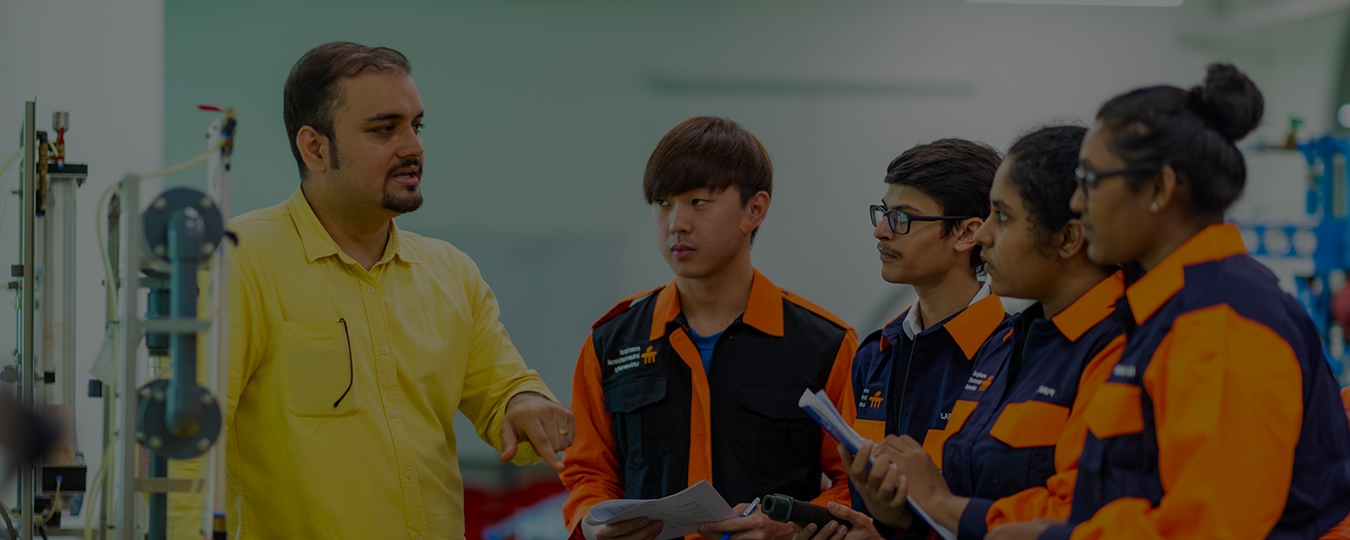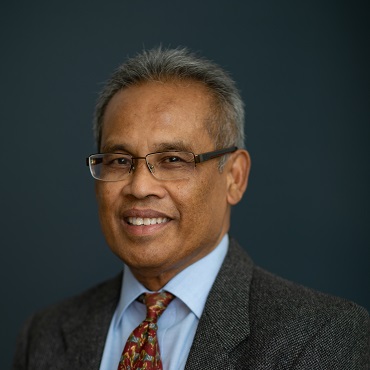| PLO # |
PLO Statement
|
PLO Indicators/Attributes |
Taxonomy Level |
| PLO 1 |
Engineering Knowledge – Apply knowledge of mathematics, science, engineering fundamentals and an engineering specialisation to the solution of complex engineering problems. WK1 – WK4 |
Define the fundamental concepts of mathematics, natural science & engineering. |
C1 |
| Describe the information related to natural science, mathematical and engineering concepts to solve complex engineering problems. |
C2 |
| Implement the concepts of mathematics natural science, engineering fundamentals and mechanical engineering specialisation. |
C3 |
| PLO 2 |
Problem Analysis – Identify, formulate, conduct research literature and analyse complex engineering problems reaching substantiated conclusions using first principles of mathematics, natural sciences and engineering sciences. WK1 – WK4 |
Interpret known and unknown information, uncertainties and biases. |
C2 |
| Implement appropriate quantitative models and analyse complex engineering problems. |
C3 |
| Formulate problems based on theoretical knowledge. |
C6 |
| Solve problems including approximation and assumptions. |
C3 |
| Evaluate and Predict risk, error, and uncertainty. |
C5 & C6 |
| Validate and tabulate the results and findings. |
C5 & C6 |
| PLO 3 |
Design / Development of Solutions – Design solutions for complex engineering problems and design systems, components or process that meet specified needs with appropriate consideration for public health and safety, cultural, societal, and environmental considerations. WK5 |
Identify and define the problem and related constraints. |
C1 |
| Outline and examine the end-user needs. |
C2 & C4 |
| Examine the multiple feasible solutions to meet the functional specifications. |
C4 |
| Develop the optimal solution for the identified problems. |
C6 |
| Assess design performance-based on functional specification and requirements. |
C5 |
| Assess the impact of design on health & safety, environmental and societal issues. |
C5 |
| PLO 4 |
Investigation – Conduct investigation of complex engineering problems using research-based knowledge (WK8) and research methods including design of experiments, analysis, and interpretation of data, and synthesis of the information to provide valid conclusions. WK8 |
Review a wide variety of literature in order to generate a research gap. |
C2 |
| Design experimental setup or methods to solve complex engineering problems. |
C6 |
| Categorise the data obtained from the experimental or investigated work. |
C3 |
| Synthesise the obtained data to reach the conclusion. |
C5 |
| Correlate the results obtained with the stated hypothesis. |
C3 |
| PLO 5 |
Modern Tool Usage – Create, select, and apply appropriate techniques, resources, and modern engineering and IT tools, including prediction and modelling, to complex engineering activities, with an understanding of the limitations; WK6 |
Select the appropriate instrument or IT tool to perform engineering activity. |
P1 |
| Detect to fix the faulty equipment. |
P1 |
| Calibrate the equipment in order to get accurate and precise results. |
P3, P4, P5 |
| Measure the output using an appropriate instrument or IT tool to perform engineering activity. |
P3, P4, P5 |
| Create engineering drawings using modern IT tools. |
P7 |
| PLO 6 |
The Engineer and Society – Apply reasoning informed by the contextual knowledge to assess societal, health, safety, legal and cultural issues, and the consequent responsibilities relevant to professional engineering practice and solutions to complex engineering problems. WK7 |
Comprehend economic, cultural, societal & technical issues related to engineering activities. |
C2 |
| Explain accurate, comprehensive, and objective technical opinions and recommendations. |
C2 |
| Choose appropriate standards, codes, legal and regulatory factors while decision making. |
C6 |
| Evaluate the protection of the public and public interest while decision making and recommendations |
C5 |
| PLO 7 |
Environment & Sustainability – Understand and evaluate the sustainability and impact of professional engineering work in the solutions of complex engineering problems in societal and environmental contexts. WK7 |
Illustrate the interrelationship between mechanical engineering systems & the environment. |
C3 |
| Evaluate technical, societal, and environmental constraints. |
C5 |
| Estimate sustainability and life-time costs in decision making and recommendations. |
C5 |
| PLO 8 |
Ethics – Apply ethical principles and commit to professional ethics and responsibilities and norms of engineering practice. WK7 |
Conform to all articles of the professional engineering code of conduct. |
A2 |
| Balance the ethical principles and technical requirements for decision-making and recommendation. |
A4 |
| PLO 9 |
Individual & Team Work – Function effectively as an individual, and as a member or leader in diverse teams and in multi-disciplinary settings; |
Select the appropriate resources, required for the accomplishment of work. |
P1 |
| Proceed to improve the work done while responding to the change in end-user needs. |
P2 |
| Construct physical models. |
P3, P4, P5, P7 |
| Arrange brainstorming sessions. |
P7 |
| Rearrange the ideas of team members appropriately while concluding or recommending the solutions |
P6 |
| PLO 10 |
Communication – Communicate effectively on complex engineering activities with the engineering community and with society at large, such as being able to comprehend and write effective reports and design documentation, make effective presentations, and give and receive clear instructions. |
Demonstrate ideas through formal and informal presentations. |
P5 |
| Adapt format, content, and tone appropriate to the target audience. |
P6 |
| Create documents using engineering report standards. |
P6 |
| Sketch the engineering drawing as per the standards. |
P4, P5 |
| Create effective posters to depict engineering activities. |
P6 |
| Create effective tabulations to emphasise the results. |
P6 |
| PLO 11 |
Project Management & Finance – Demonstrate knowledge and understanding of engineering management principles and economic decision-making and apply these to one’s own work, as a member and leader in a team, to manage projects in multidisciplinary environments. |
Demonstrate the development of engineering projects. |
C2 |
| Create effective planning to accomplish the engineering projects |
C6 |
| Create a cost-effective method to accomplish the projects. |
C6 |
| Optimise the utilisation of resources. |
C5 |
| Manage and evaluate the risk involved in the projects. |
C4, C5 |
| Apply cost effective solution. |
C3 |
| PLO 12 |
Life-Long Learning – Recognise the need for and have the preparation and ability to engage in independent and life-long learning in the broadest context of technological change. |
Demonstrate skills of self-education and familiarity with appropriate tools. |
A3 |
| Interpret the research literature and identify the learning needs. |
A5 |
| Qualify as a member of professional bodies and technical societies. |
A5 |












